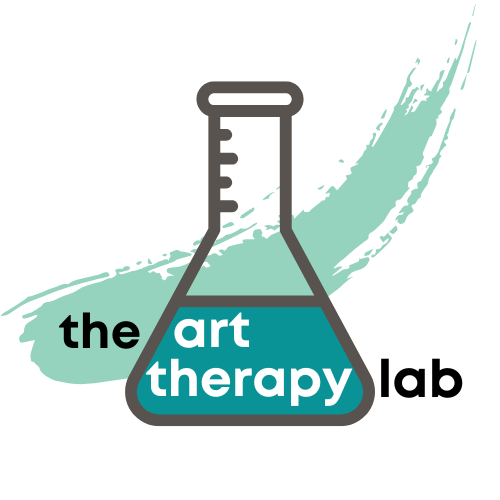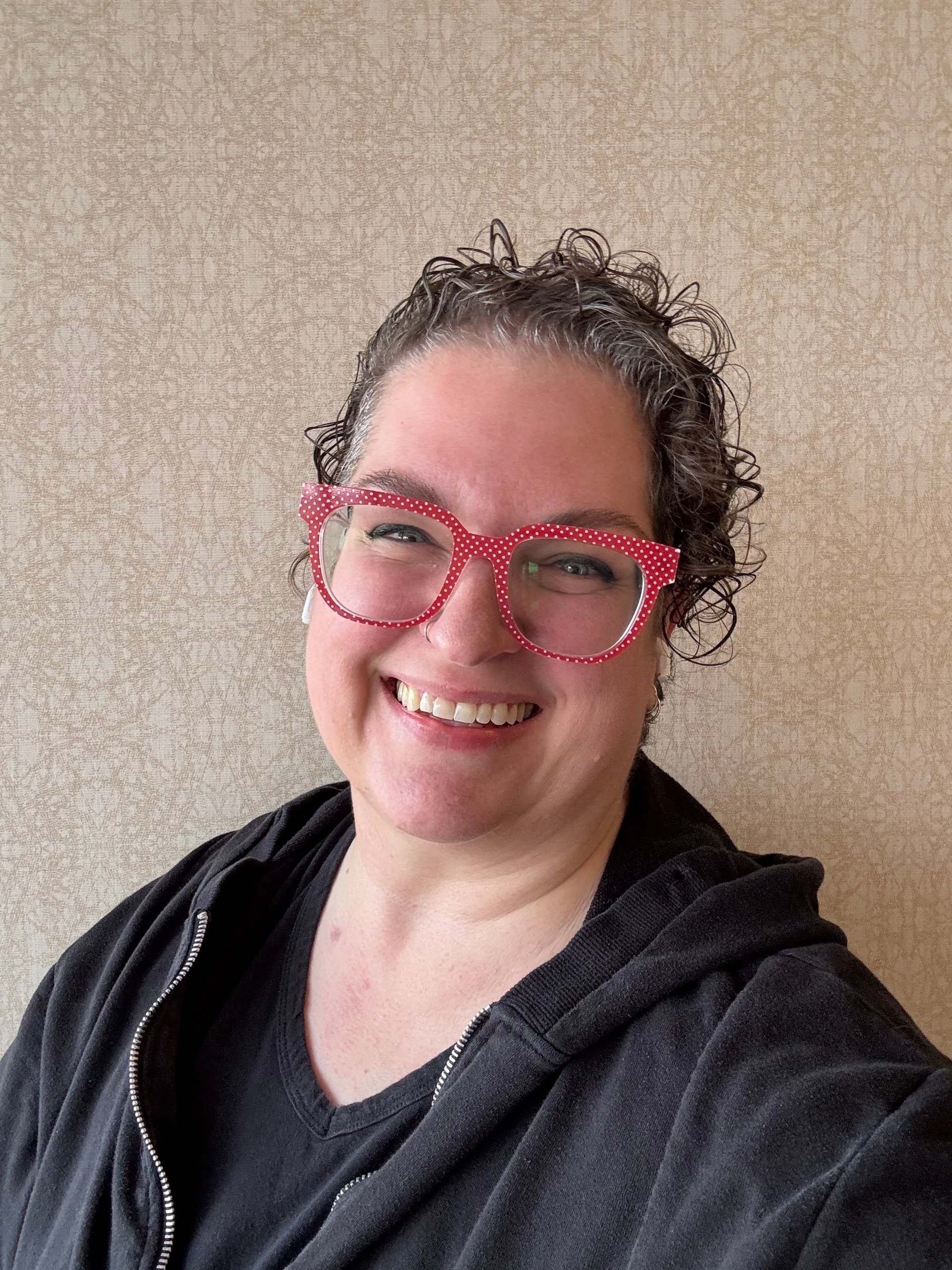
Welcome to The Art Therapy Lab!
Art therapy strategies to strengthen the profession, improve client outcomes, and narrow the research-practice gap
You’re in the right place!
You don’t need to be an academic.
You don’t need a research background.
Your clinical experience matters.
You belong here.
Or keep reading…
What is the Art Therapy Lab?
It's a resource, a community, and a movement
🛠️ A resource hub
Newsletter, courses, workshops, tools, CEU’s, tutorials, and strategies to inform your research-informed work — all built by art therapists for art therapist
🔬 A movement to bridge the gap
The research-practice gap exists because practicing art therapists can't get heard
We’re changing that.
📢 A platform for practitioner voices
Your observations matter
Your clients deserve the best
🔓 A challenge to institutional barriers
Academic jargon, paywalled journals, and old-school hierarchies aren't protecting quality — they're protecting territory.
We're democratizing access to research and clinical strategies.
🤝 A collaborative learning community
No gatekeeping. No hierarchy. No academic hoops.
Just art therapists committed to each other's success, learning together and elevating each other
Or keep reading…
Who is the Art Therapy Lab For?
You're an art therapist and…
🤷🏾 You’re supposed to do “evidence-based practice,” but… how?
You know it works, but you struggle to explain the power of art therapy to clients, their family members, your boss, or your partner
People ask you about art therapy evidence, but you aren’t sure what to say
💡You know your clinical experience matters, but you don’t see yourself or your clients reflected in research, education, or academia
You see gaps in the field but hear, “that’s just the way things are” or “art therapy can’t really be measured.”
You'd like to "check the literature," but don't have access.
🎯 Your real-world experience matters, even though it doesn’t get enough credit
You have a nagging sense that systems of power are keeping your ideas on the outside for a reason.
You believe that learning together and elevating each other is how we build the field and improve our work.
🌱 We have resources for:
Students and new graduates building their confidence
Seasoned professionals and their clinical wisdom
Supervisors and educators training the next generation
Anyone who believes clinician voices should inform research and practice
No matter where you are in your career, if the research-practice gap feels artificially wide, you belong here.
Or keep reading…
🚨 Why it Matters 🚨
The field is being shaped by people who aren’t clinicians
📢 Never before has the world been so focused on evidence
That’s not a bad thing, but while you’re doing the work, others are writing the story of what art therapy is, what it should be, and even what it can be.
🌡️ The consequences are real
Funding, jobs, and clinical legitimacy increasingly depend on "evidence" that many art therapists can't articulate in language administrators and funders demand.
Programs get cut when we can't demonstrate outcomes in measurable terms.
🗝️ Because gatekeeping
Institutional barriers keep practicing art therapists and their real-world ideas from reaching the people who need them.
Academic jargon, pay-walled journals, and old-school hierarchies aren't protecting quality, they're protecting territory.
💗 Your impact can grow, but needs a starting point
Your legacy of meaningful change doesn't have to end with your direct client work.
The right skills let you influence treatment approaches, train the next generation, and shape policy.
🎯 But here’s the truth
Practicing art therapists are doing the work but aren’t part of the conversation.
(I know, because I’ve been an art therapist for longer than most grad students have been alive.)
Your wisdom from thousands of client hours? That's data.
Your innovative approaches? That's research waiting to happen.
Your confusion about what research actually says and what it means for you and your clients in the real world? Well… that might be built into the system.
If you don't have the tools to move with the field (or move the field yourself), your wisdom dies when you retire.
Or keep reading…
Member Perks
Everything you need to bridge the research-practice gap without going back to school
📚 Research made useful
A free newsletter with no spam, ever
Studies translated into language that you can actually use
Tools to decode academic jargon and spot research BS
🛠️ Practical skills & resources
Step-by-step guides for understanding and evaluating research
Educational resources to fill the gaps from grad school (they couldn’t teach you everything, and being an effective art therapist comes first)
Scientifically-sound strategies to get your ideas into the world
🤝 A community that has your back
Art therapists committed to each other's success
A no-hater collaboration
Collaborative learning without jumping through academic hoops
Early access to courses and resources built specifically for your needs
Or keep reading…
Who Runs the Art Therapy Lab?
Hi, I’m Malissa Morrell 👩🏻🔬
ATR-BC | ATCS | LMFT | PhD Student
Practicing Art Therapist | Supervisor | Educator
I've been practicing art therapy for more than 20 years, supervising for nearly that long, and teaching graduate student therapists for over 10 years.
Like you, I was told that research should inform my practice. Unfortunately, no one taught me how.
So I went back to school for a PhD.
Now, I'm on a mission: to help you become a confident, research-informed art therapist without having to go back to school.
My Approach
Practitioner voices come first, always
Real-world application — tools you can use today
Democratizing access, challenging gatekeeping
Simplify. Don’t over-complicate.
Accessible, jargon-free teaching for real humans
Anti-racism and social justice built in, not added on
Community over competition — we rise together
Or keep reading…
Why the Lab Exists
Here’s what I believe
Art therapy research is sparse, under-disseminated, and not rigorous enough.
They think our work has no evidence.
But our education didn’t give us the tools we need to implement scientific findings, let alone conduct our own research.
Meanwhile, we’re out here trying to prove our worth in an “evidence-based” world.
🚫 It doesn’t have to be this way
Academic jargon, pay-walled journals, and old-school hierarchies aren’t protecting quality — they’re protecting territory.
🏆 You deserve better
Your clinical experience is evidence.
You’re observing and recording data every single session.
You just need some guidance about what that means and what to do with it.
You don’t need to go back to school. You just need the right tools and a supportive community.
That’s what The Art Therapy Lab is here for.
Or keep reading…
Get on the list for lab announcements!
Subscribe here.
Your email address will only be used to send you The Art Therapy Lab newsletter. We will never share, sell, or spam your inbox. A one-click unsubscribe link is included in every email.
